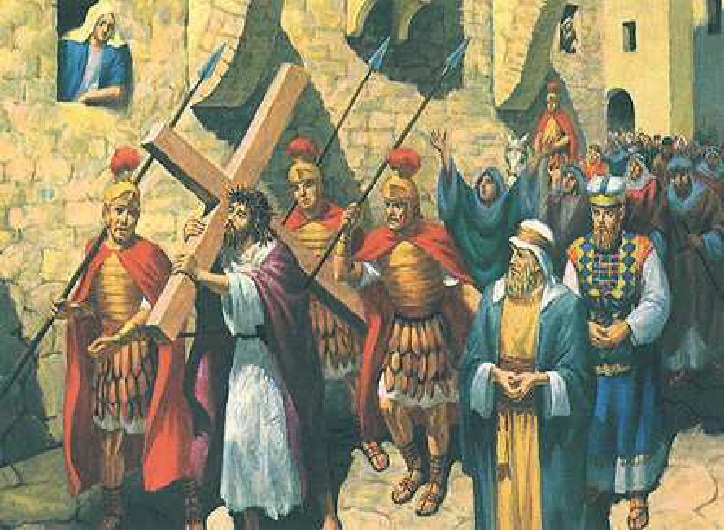Jesus said, " I am the good shepherd. The good shepherd lays down his life for the sheep. . . . I know my sheep and my sheep know me--just as the Father knows me and I know the Father--and I lay down my life for the sheep. . . . The reason my Father loves me is that I lay down my life--only to take it up again. No one takes it from me, but I lay it down of my own accord. . . . My sheep listen to my voice; I know them, and they follow me. I give them eternal life, and they shall never perish; no one can snatch them out of my hand" (John 10:11, 14, 15, 17, 18, 27, 28, NIV).
David was called "a man after God's own heart." When he was just a youth, God sent Samuel the prophet to anoint him to be king over his people Israel.
David was a shepherd--a good shepherd--who loved his sheep and risked his life on occasion to protect them. When he was in the wilderness, caring for his flock, he would play his harp and sing songs that he had composed. He was called the sweet singer of Israel. He composed the most read and quoted song of all time, the Twenty-third Psalm.
David knew his Lord and his Redeemer. Throughout his life he had taken a lamb to the Sanctuary to be slain for his sins. It was anguish for him to take one of his cherished lambs to be killed as a sacrifice, and he learned well that the coming Messiah, who was represented by the lamb, would die for his sins.
David was known far and wide for his bravery in slaying the giant Goliath, as well as many other valiant deeds, and he was made king over Israel.
One day the prophet Nathan came before King David with a story of a rich man with many sheep, who took the only lamb a poor neighbor owned, and killed and dressed it for a visitor who had stopped to see him. David became exceedingly angry, and said, "As surely as the Lord lives, the man who did this deserves to die! He must pay for that lamb four times over, because he did such a thing and had no pity" (2 Samuel 12: 5, 6, NIV). Then Nathan said, "You are the man who did this."
David had committed a terrible sin. He had committed adultery with his neighbor's wife, and when he discovered she was pregnant, he had her husband moved to the front line in the war so he would be killed. Then he brought Bathsheba to his house and she became his wife.
David was the lost sheep that wandered away, but a loving God went after him to bring him back to the fold. David acknowledged his sin and repented with anguish and tears.
After David's death God spoke well of him. A prophet gave this message to King Jeroboam, who had apostasized, ". . . you have not been like my servant David, who kept my commands and followed me with all his heart, doing only what was right in my eyes" (1 Kings 14:8, NIV).
How could God say this about someone who had sinned so greatly? Had God forgotten David's sins of adultery and murder?
This is perhaps the best example of God's grace in the Bible. When the sinner truly repents, and confesses his sins, he comes under the covering of the robe of Christ's righteousness; God sees only the righteousness of Jesus His Son, and not the sins of the penitent sinner. Because of our sins, we deserve death; but Christ our Substitute--as a lamb brought to the slaughter--laid down His perfect life as the sacrifice for our sins. God pardons and counts us as justified as though we had never sinned. This is true of the past, the present, and the future, as long as we live and depend on the merits of our Lord.
"God made him who had no sin to be sin for us, so that in him we might become the righteousness of God" (2 Corinthians 5:21, NIV).
". . . God was reconciling the world to himself in Christ, not counting men's sins against them" (2 Corinthians 5:19, NIV).
"For it is by grace you have been saved, through faith--and this not from yourselves, it is the gift of God--not by works, so that no one can boast" (Ephesians 2:8, 9, NIV).
And so the gift is given, the Messiah is sent, and the Son of God--with an order for His substitutionary death in one hand, and pardon for a lost world in the other--appears in the prison of this world, unlocks the gates, and sets free all who accept the freedom He offers.
"And he died for all, that those who live should no longer live for themselves but for him who died for them and was raised again. . . . Therefore, if anyone is in Christ, he is a new creation; the old has gone, the new has come!" (2 Corinthians 5:15, 17, NIV).
Every person we meet has been purchased with the blood of Christ. When we realize that God sees the repentant sinner only by the righteousness of Jesus Christ our Substitute, when we can see the reflection of the face of Christ on the countenance of every one for whom Christ died, when we love others as Christ loves us, when we are looking to Jesus and not to ourselves, then we are learning to live for God.
